Special Report
States Getting the Most COVID-19 Vaccines From the Federal Government
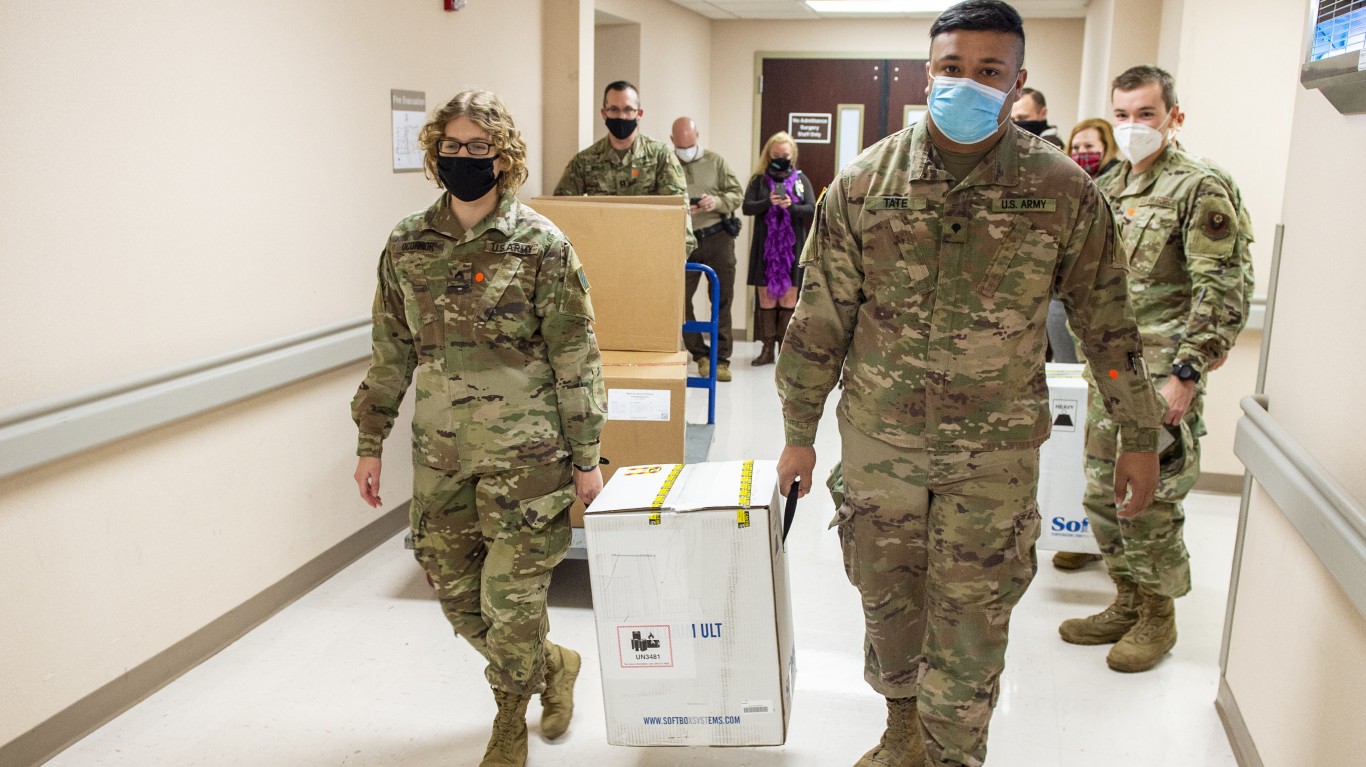
Published:

It has now been 10 weeks since the first shipments of the COVID-19 vaccine were sent out to states, kicking off the largest vaccination campaign in human history. As of Feb. 23, 82,114,370 doses of the vaccine have been sent out across the country — equivalent to 25.1% of the U.S. population.
While the distribution of the vaccine is taking longer than initial federal projections had indicated, some states are faring far better than others. Under the current system, named Operation Warp Speed, the Centers for Disease Control and Prevention sends states limited shipments of the vaccine as well as funding and tasks them with distributing the vaccine in accordance with relatively loose federal guidelines. The initial distribution of the vaccine is based on the size of the adult population in every state, which — according to some experts — can create inequities in states where a larger share of the population is at risk.
At this stage of the vaccine rollout, distribution of the vaccine varies widely from state to state. While the CDC has so far sent out an average of 25,098.6 vaccine doses per 100,000 Americans, Alaska has received 41,342 doses per 100,000 residents — the most of any state. Meanwhile, Texas has received 21,432 doses per 100,000, the fewest of any state.
While the distribution of the vaccine is determined by a formula based on the size of the adult population in each state, smaller states have so far received an outsized allotment of doses. As of Feb. 23, the 10 smallest states have received an average of 28,670 doses of the vaccine per 100,000 residents. In comparison, the 10 largest states have received an average of 24,406 doses per 100,000 residents.
While the federal government distributes vaccines to states, it is up to state governments to administer the vaccine — creating variations in both the percentage of vaccines that have been administered and the percentage of the population that has been vaccinated. In Montana, 93.3% of vaccine doses have been administered, the most of any state and far greater than the 79.2% national average. In Arkansas, 68.0% of vaccine doses have been administered, the least of any state.
At this stage of the rollout, the number of doses administered in Alaska is equivalent to 32.5% of the state population — the largest share of any state. The lowest vaccination rate is in Alabama, where 16.7% of residents have received a dose of the vaccine. Nationwide, the number of doses administered is equivalent to 19.9% of the U.S. population.
While a majority of Americans remain unvaccinated due to a lack of supply, there are some who have no plans to receive a vaccine at all. According to a survey from the U.S. Census Bureau, 22.7% of U.S. adults 18 and over who have not yet received the vaccine will either probably not or definitely not get a COVID-19 vaccine in the future. The most common reason cited for not wanting a vaccine was being concerned about possible side effects. Other commonly cited reasons include that they were planning to wait and see if it is safe, that other people need it more right now, and not trusting COVID-19 vaccines.
To determine the states getting the most vaccines from the federal government, 24/7 Wall St. reviewed data from the Centers for Disease Control and Prevention. States were ranked based on the number of vaccines administered as of Feb. 23 per 100,000 residents. Vaccine counts were adjusted for population using one-year data from the Census Bureau’s 2018 American Community Survey. Data on confirmed COVID-19 cases as of Feb. 23 came from various state and local health departments and were adjusted for population using 2018 ACS data. Data on the percentage of adults who probably will not or definitely will not get a COVID-19 vaccine and their reasons for not getting one came from the Census Bureau’s Household Pulse Survey, conducted from Feb. 3, 2021 to Feb. 15, 2021.

50. Texas
> Vaccines distributed per 100,000: 21,432
> Vaccines administered as pct. of population: 16.7% (2nd fewest)
> COVID-19 cases per 100,000 residents: 9,081 (24th most)
> Population: 28,701,845
These are all the counties in Texas where COVID-19 is slowing (and where it’s still getting worse).

49. Missouri
> Vaccines distributed per 100,000: 21,466
> Vaccines administered as pct. of population: 18.1% (8th fewest)
> COVID-19 cases per 100,000 residents: 7,766 (14th fewest)
> Population: 6,126,452

48. South Carolina
> Vaccines distributed per 100,000: 22,084
> Vaccines administered as pct. of population: 18.5% (9th fewest)
> COVID-19 cases per 100,000 residents: 9,970 (13th most)
> Population: 5,084,127

47. Idaho
> Vaccines distributed per 100,000: 22,165
> Vaccines administered as pct. of population: 19.4% (18th fewest)
> COVID-19 cases per 100,000 residents: 9,683 (16th most)
> Population: 1,754,208
These are all the counties in Idaho where COVID-19 is slowing (and where it’s still getting worse).

46. Alabama
> Vaccines distributed per 100,000: 22,186
> Vaccines administered as pct. of population: 16.7% (fewest)
> COVID-19 cases per 100,000 residents: 10,004 (12th most)
> Population: 4,887,871

45. Georgia
> Vaccines distributed per 100,000: 22,523
> Vaccines administered as pct. of population: 17.9% (6th fewest)
> COVID-19 cases per 100,000 residents: 9,419 (19th most)
> Population: 10,519,475

44. Utah
> Vaccines distributed per 100,000: 22,888
> Vaccines administered as pct. of population: 19.3% (17th fewest)
> COVID-19 cases per 100,000 residents: 11,635 (3rd most)
> Population: 3,161,105
These are all the counties in Utah where COVID-19 is slowing (and where it’s still getting worse).

43. Tennessee
> Vaccines distributed per 100,000: 23,075
> Vaccines administered as pct. of population: 16.8% (3rd fewest)
> COVID-19 cases per 100,000 residents: 11,316 (4th most)
> Population: 6,770,010

42. Illinois
> Vaccines distributed per 100,000: 23,588
> Vaccines administered as pct. of population: 19.0% (12th fewest)
> COVID-19 cases per 100,000 residents: 9,240 (22nd most)
> Population: 12,741,080

41. Iowa
> Vaccines distributed per 100,000: 23,651
> Vaccines administered as pct. of population: 19.5% (21st fewest)
> COVID-19 cases per 100,000 residents: 10,563 (8th most)
> Population: 3,156,145
These are all the counties in Iowa where COVID-19 is slowing (and where it’s still getting worse).

40. Nevada
> Vaccines distributed per 100,000: 23,724
> Vaccines administered as pct. of population: 19.7% (23rd fewest)
> COVID-19 cases per 100,000 residents: 9,608 (18th most)
> Population: 3,034,392
These are all the counties in Nevada where COVID-19 is slowing (and where it’s still getting worse).

39. New Jersey
> Vaccines distributed per 100,000: 23,738
> Vaccines administered as pct. of population: 19.7% (24th fewest)
> COVID-19 cases per 100,000 residents: 8,668 (21st fewest)
> Population: 8,908,520

38. Minnesota
> Vaccines distributed per 100,000: 23,971
> Vaccines administered as pct. of population: 20.9% (17th most)
> COVID-19 cases per 100,000 residents: 8,556 (20th fewest)
> Population: 5,611,179

37. Kansas
> Vaccines distributed per 100,000: 24,039
> Vaccines administered as pct. of population: 17.8% (5th fewest)
> COVID-19 cases per 100,000 residents: 10,019 (11th most)
> Population: 2,911,510
These are all the counties in Kansas where COVID-19 is slowing (and where it’s still getting worse).

36. Wisconsin
> Vaccines distributed per 100,000: 24,102
> Vaccines administered as pct. of population: 21.7% (14th most)
> COVID-19 cases per 100,000 residents: 9,642 (17th most)
> Population: 5,813,568

35. Mississippi
> Vaccines distributed per 100,000: 24,135
> Vaccines administered as pct. of population: 16.9% (4th fewest)
> COVID-19 cases per 100,000 residents: 9,751 (15th most)
> Population: 2,986,530

34. Louisiana
> Vaccines distributed per 100,000: 24,199
> Vaccines administered as pct. of population: 19.5% (20th fewest)
> COVID-19 cases per 100,000 residents: 9,143 (23rd most)
> Population: 4,659,978

33. Arizona
> Vaccines distributed per 100,000: 24,480
> Vaccines administered as pct. of population: 21.3% (16th most)
> COVID-19 cases per 100,000 residents: 11,304 (5th most)
> Population: 7,171,646

32. Michigan
> Vaccines distributed per 100,000: 24,496
> Vaccines administered as pct. of population: 19.9% (25th most)
> COVID-19 cases per 100,000 residents: 6,400 (8th fewest)
> Population: 9,995,915
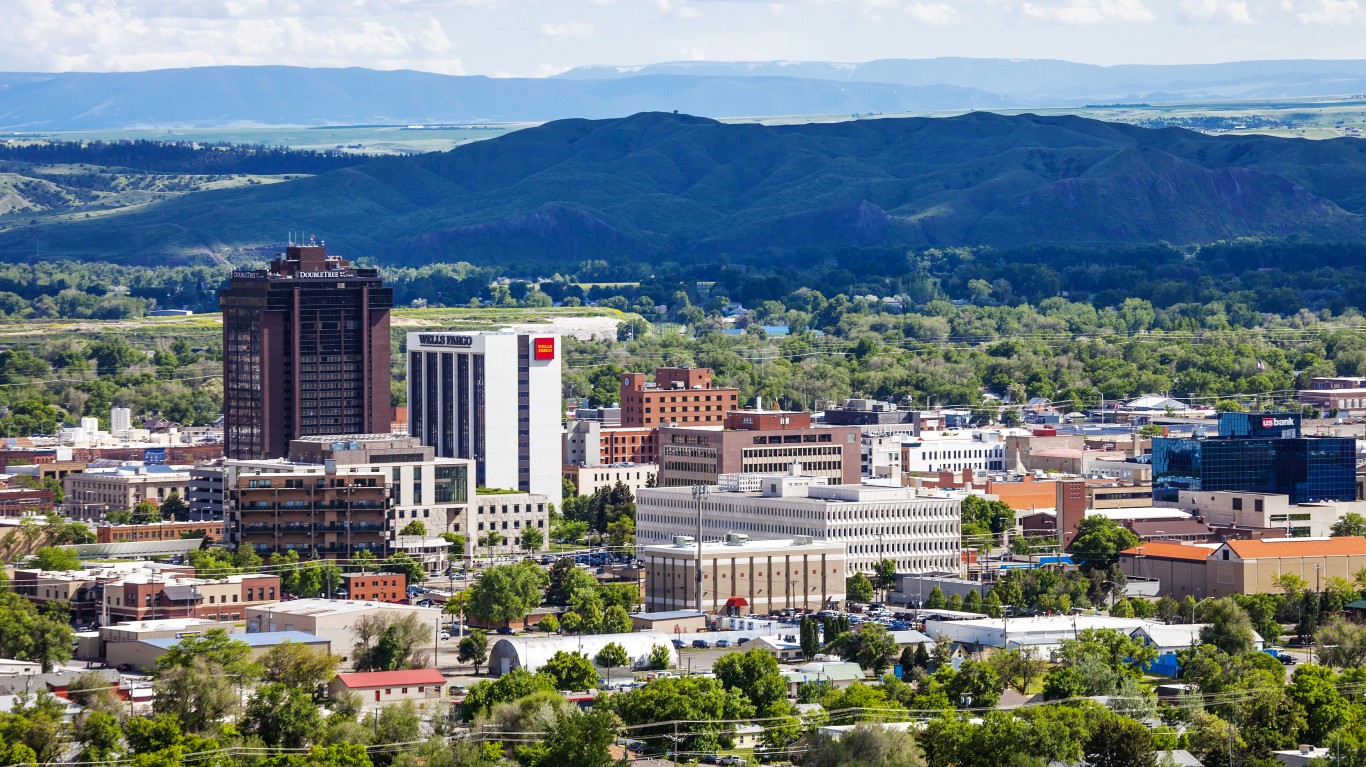
31. Montana
> Vaccines distributed per 100,000: 24,511
> Vaccines administered as pct. of population: 22.9% (11th most)
> COVID-19 cases per 100,000 residents: 9,323 (21st most)
> Population: 1,062,305

30. New York
> Vaccines distributed per 100,000: 24,747
> Vaccines administered as pct. of population: 19.3% (16th fewest)
> COVID-19 cases per 100,000 residents: 8,144 (16th fewest)
> Population: 19,542,209

29. Colorado
> Vaccines distributed per 100,000: 24,883
> Vaccines administered as pct. of population: 21.7% (15th most)
> COVID-19 cases per 100,000 residents: 7,416 (12th fewest)
> Population: 5,695,564

28. North Carolina
> Vaccines distributed per 100,000: 24,957
> Vaccines administered as pct. of population: 20.4% (21st most)
> COVID-19 cases per 100,000 residents: 8,150 (17th fewest)
> Population: 10,383,620

27. Massachusetts
> Vaccines distributed per 100,000: 25,316
> Vaccines administered as pct. of population: 21.7% (13th most)
> COVID-19 cases per 100,000 residents: 8,284 (19th fewest)
> Population: 6,902,149

26. Ohio
> Vaccines distributed per 100,000: 25,348
> Vaccines administered as pct. of population: 19.1% (14th fewest)
> COVID-19 cases per 100,000 residents: 8,197 (18th fewest)
> Population: 11,689,442
These are all the counties in Ohio where COVID-19 is slowing (and where it’s still getting worse).

25. New Hampshire
> Vaccines distributed per 100,000: 25,372
> Vaccines administered as pct. of population: 20.2% (23rd most)
> COVID-19 cases per 100,000 residents: 5,450 (6th fewest)
> Population: 1,356,458

24. Indiana
> Vaccines distributed per 100,000: 25,476
> Vaccines administered as pct. of population: 19.4% (19th fewest)
> COVID-19 cases per 100,000 residents: 9,818 (14th most)
> Population: 6,691,878

23. Washington
> Vaccines distributed per 100,000: 25,483
> Vaccines administered as pct. of population: 19.8% (25th fewest)
> COVID-19 cases per 100,000 residents: 4,455 (5th fewest)
> Population: 7,535,591

22. Pennsylvania
> Vaccines distributed per 100,000: 25,522
> Vaccines administered as pct. of population: 18.6% (10th fewest)
> COVID-19 cases per 100,000 residents: 7,167 (10th fewest)
> Population: 12,807,060

21. Delaware
> Vaccines distributed per 100,000: 25,550
> Vaccines administered as pct. of population: 19.3% (15th fewest)
> COVID-19 cases per 100,000 residents: 8,812 (24th fewest)
> Population: 967,171

20. California
> Vaccines distributed per 100,000: 25,706
> Vaccines administered as pct. of population: 19.5% (22nd fewest)
> COVID-19 cases per 100,000 residents: 8,722 (22nd fewest)
> Population: 39,557,045

19. Florida
> Vaccines distributed per 100,000: 25,744
> Vaccines administered as pct. of population: 20.7% (19th most)
> COVID-19 cases per 100,000 residents: 8,820 (25th fewest)
> Population: 21,299,325

18. Rhode Island
> Vaccines distributed per 100,000: 25,750
> Vaccines administered as pct. of population: 20.0% (24th most)
> COVID-19 cases per 100,000 residents: 11,753 (2nd most)
> Population: 1,057,315

17. Oregon
> Vaccines distributed per 100,000: 26,067
> Vaccines administered as pct. of population: 20.6% (20th most)
> COVID-19 cases per 100,000 residents: 3,666 (4th fewest)
> Population: 4,190,713
These are all the counties in Oregon where COVID-19 is slowing (and where it’s still getting worse).

16. Arkansas
> Vaccines distributed per 100,000: 26,353
> Vaccines administered as pct. of population: 17.9% (7th fewest)
> COVID-19 cases per 100,000 residents: 10,505 (9th most)
> Population: 3,013,825

15. Kentucky
> Vaccines distributed per 100,000: 26,438
> Vaccines administered as pct. of population: 19.1% (13th fewest)
> COVID-19 cases per 100,000 residents: 8,930 (25th most)
> Population: 4,468,402

14. Maine
> Vaccines distributed per 100,000: 26,547
> Vaccines administered as pct. of population: 22.4% (12th most)
> COVID-19 cases per 100,000 residents: 3,268 (3rd fewest)
> Population: 1,338,404
These are all the counties in Maine where COVID-19 is slowing (and where it’s still getting worse).

13. Nebraska
> Vaccines distributed per 100,000: 26,693
> Vaccines administered as pct. of population: 20.4% (22nd most)
> COVID-19 cases per 100,000 residents: 10,336 (10th most)
> Population: 1,929,268

12. Virginia
> Vaccines distributed per 100,000: 26,805
> Vaccines administered as pct. of population: 20.7% (18th most)
> COVID-19 cases per 100,000 residents: 6,657 (9th fewest)
> Population: 8,517,685

11. Maryland
> Vaccines distributed per 100,000: 27,056
> Vaccines administered as pct. of population: 18.7% (11th fewest)
> COVID-19 cases per 100,000 residents: 6,249 (7th fewest)
> Population: 6,042,718

10. West Virginia
> Vaccines distributed per 100,000: 28,400
> Vaccines administered as pct. of population: 26.1% (4th most)
> COVID-19 cases per 100,000 residents: 7,207 (11th fewest)
> Population: 1,805,832

9. Vermont
> Vaccines distributed per 100,000: 28,520
> Vaccines administered as pct. of population: 23.0% (9th most)
> COVID-19 cases per 100,000 residents: 2,346 (2nd fewest)
> Population: 626,299
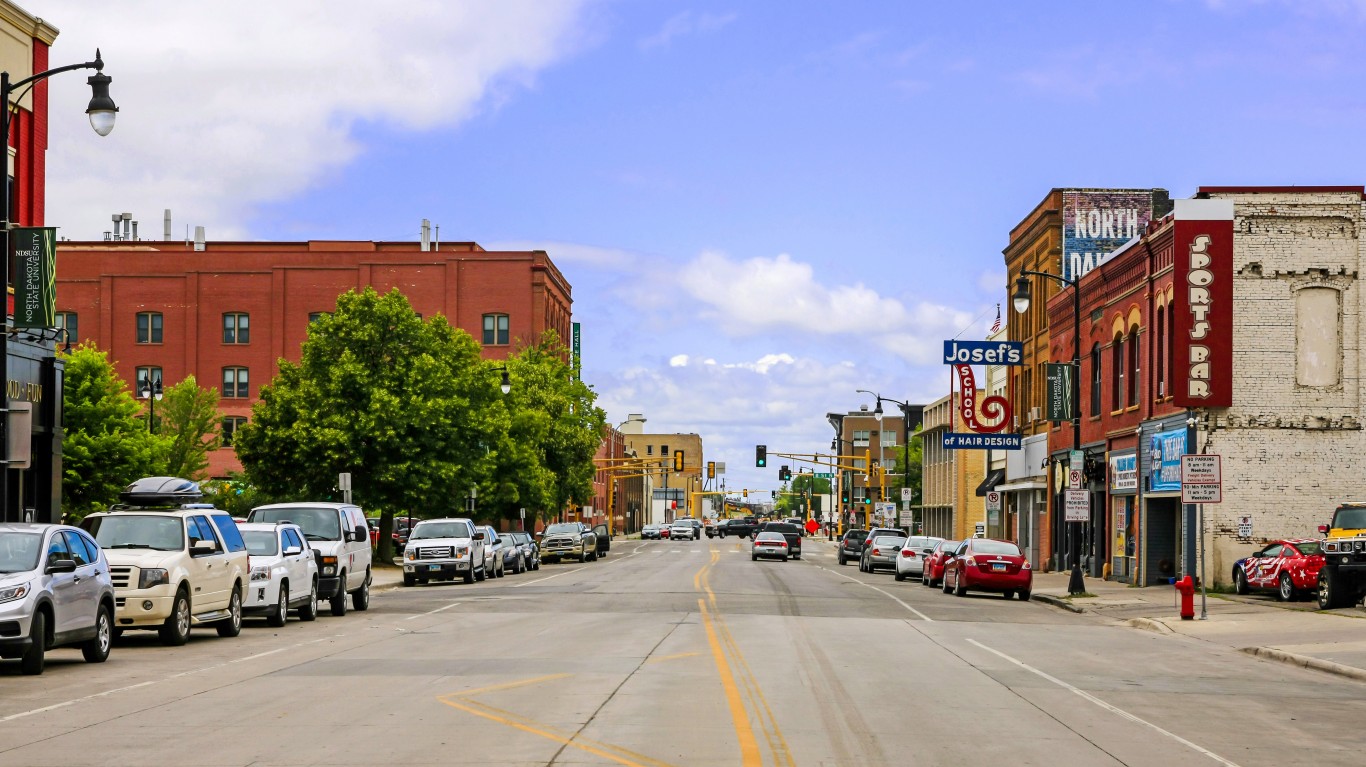
8. North Dakota
> Vaccines distributed per 100,000: 28,613
> Vaccines administered as pct. of population: 25.9% (5th most)
> COVID-19 cases per 100,000 residents: 13,080 (most)
> Population: 760,077

7. Connecticut
> Vaccines distributed per 100,000: 28,711
> Vaccines administered as pct. of population: 25.0% (6th most)
> COVID-19 cases per 100,000 residents: 7,745 (13th fewest)
> Population: 3,572,665
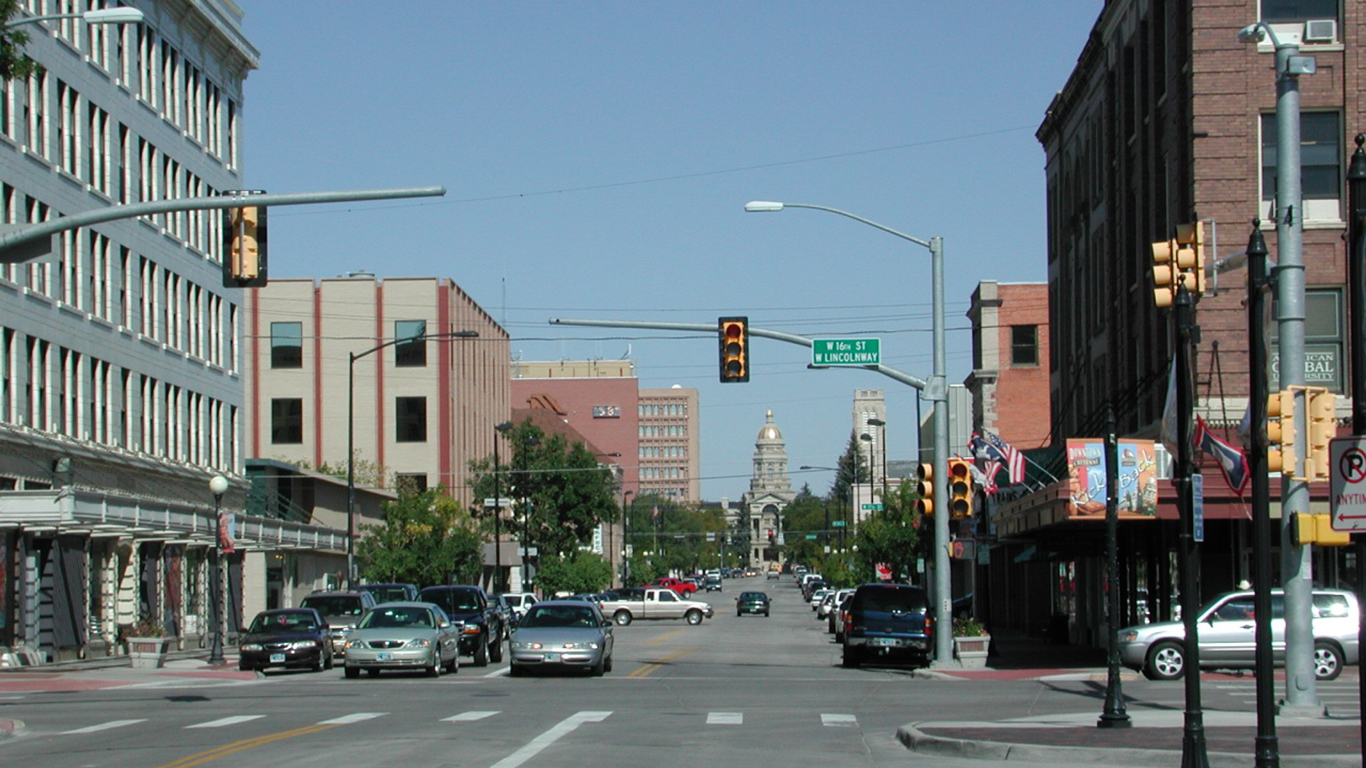
6. Wyoming
> Vaccines distributed per 100,000: 28,910
> Vaccines administered as pct. of population: 23.6% (7th most)
> COVID-19 cases per 100,000 residents: 9,337 (20th most)
> Population: 577,737

5. Oklahoma
> Vaccines distributed per 100,000: 29,757
> Vaccines administered as pct. of population: 23.0% (10th most)
> COVID-19 cases per 100,000 residents: 10,657 (7th most)
> Population: 3,943,079

4. New Mexico
> Vaccines distributed per 100,000: 31,517
> Vaccines administered as pct. of population: 29.2% (2nd most)
> COVID-19 cases per 100,000 residents: 8,749 (23rd fewest)
> Population: 2,095,428
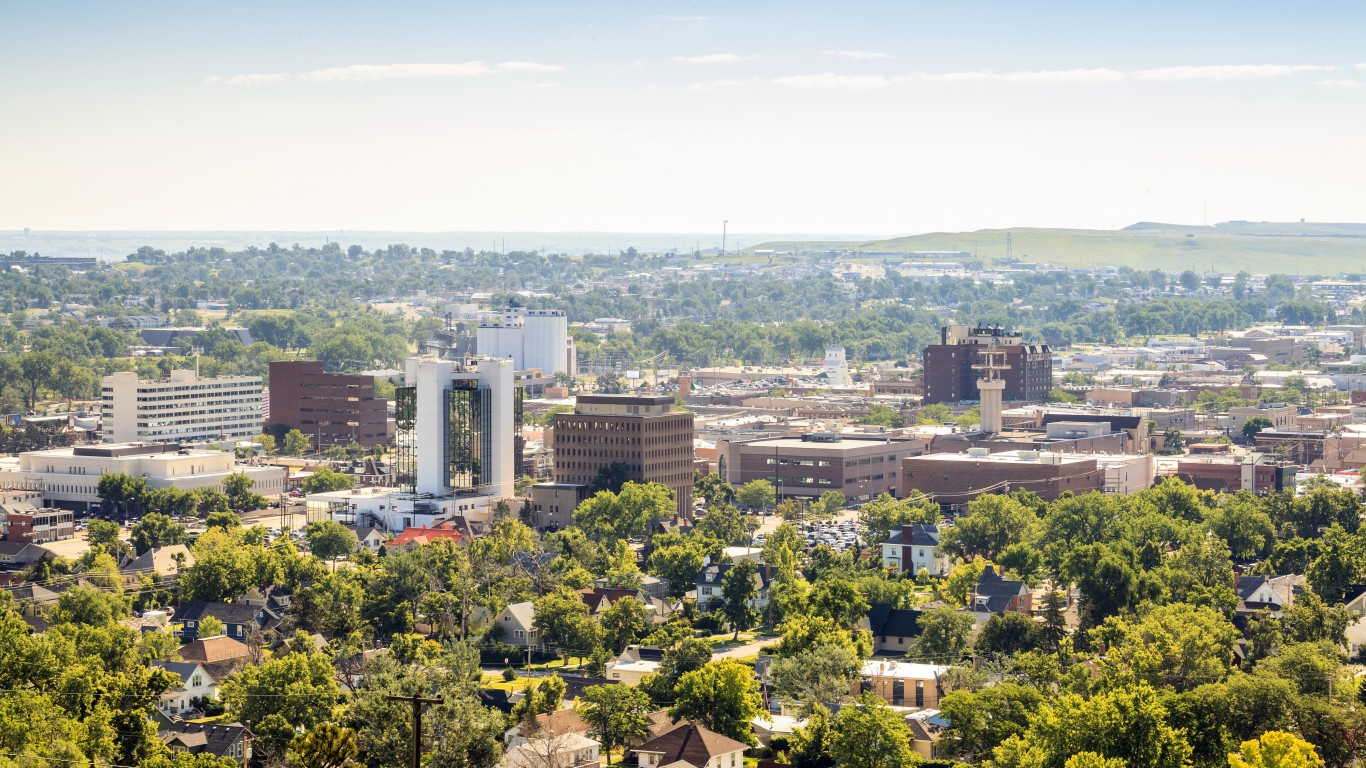
3. South Dakota
> Vaccines distributed per 100,000: 31,587
> Vaccines administered as pct. of population: 26.9% (3rd most)
> COVID-19 cases per 100,000 residents: 11,241 (6th most)
> Population: 882,235

2. Hawaii
> Vaccines distributed per 100,000: 31,641
> Vaccines administered as pct. of population: 23.5% (8th most)
> COVID-19 cases per 100,000 residents: 1,920 (fewest)
> Population: 1,420,491
These are all the counties in Hawaii where COVID-19 is slowing (and where it’s still getting worse).

1. Alaska
> Vaccines distributed per 100,000: 41,342
> Vaccines administered as pct. of population: 32.5% (most)
> COVID-19 cases per 100,000 residents: 7,839 (15th fewest)
> Population: 737,438
These are all the counties in Alaska where COVID-19 is slowing (and where it’s still getting worse).
Click here to see all coronavirus data for every state.
The thought of burdening your family with a financial disaster is most Americans’ nightmare. However, recent studies show that over 100 million Americans still don’t have proper life insurance in the event they pass away.
Life insurance can bring peace of mind – ensuring your loved ones are safeguarded against unforeseen expenses and debts. With premiums often lower than expected and a variety of plans tailored to different life stages and health conditions, securing a policy is more accessible than ever.
A quick, no-obligation quote can provide valuable insight into what’s available and what might best suit your family’s needs. Life insurance is a simple step you can take today to help secure peace of mind for your loved ones tomorrow.
Click here to learn how to get a quote in just a few minutes.
Thank you for reading! Have some feedback for us?
Contact the 24/7 Wall St. editorial team.